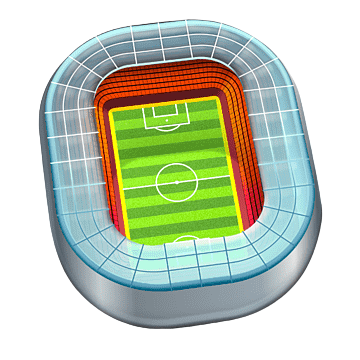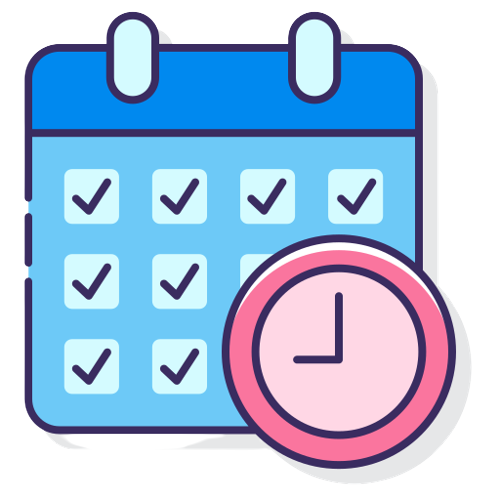10 Quick Tips To ADHD Adult Diagnosis
페이지 정보
작성자 Mary 댓글 0건 조회 209회 작성일 24-05-06 03:05본문
 Adult Diagnosis of ADHD
Adult Diagnosis of ADHDA diagnosis of ADHD can alter the lives of adults who suffer from the disorder. It can help people to discover the reason for their struggles at work, in their family and in their relationships.
It is often difficult to determine the cause because symptoms can overlap. A health care professional or mental health professional will assess the patient and conduct tests.
Symptoms
The person might not even be aware they have ADHD until they reach adulthood Perhaps because teachers or parents did not recognize symptoms at a younger age or because the demands of college or work life made the disorder more apparent. Adults with untreated ADHD are more vulnerable in their work, school and social lives. Many people with undiagnosed ADHD have a range of problems, such as problems with relationships and financial problems.
To determine the presence of ADHD to diagnose it, a mental health professional will interview the patient and review the patient's personal, medical and mental health history, with particular attention paid to symptoms in different environments. The patient will be asked to describe the symptoms and how they impact their daily functioning as well as their relationships. It is essential that the patient is open about these symptoms and that he or she does not hide behind feelings of shame or embarrassment.
The mental health professional must also determine if these symptoms are connected to other comorbidities, such as anxiety and depression, which often coexist with ADHD. These conditions can make ADHD symptoms worse and interfere with the treatment of the disorder.
If a psychologist or psychiatrist thinks that the symptoms of ADHD are influenced by comorbid conditions, additional psycho-, neuropsychological or learning disabilities tests could be used to help establish an accurate diagnosis. These tests will also help determine the level of functional impairment caused by these conditions. In addition, the mental health professional might ask to interview one or more significant people, such as spouses, siblings and colleagues in order to collect an accurate picture of the person's functioning and challenges.
Diagnosis
For adults the diagnosis of ADHD is usually made by a mental health care medical professional or physician who conducts a thorough diagnostic evaluation. This involves a thorough interview about the history of symptoms and their impact on everyday functioning and Adult Diagnosis of ADHD the presence of any other mental health disorders that may co-occur with ADHD, such as anxiety and mood disorders. The practitioner may also ask to speak to significant others, such as the spouse or a close family friend, in order for them gather more information.
Being diagnosed with ADHD in adulthood can be a life-changing moment. For many adults, this diagnosis finally provides an explanation for what always appeared to be "normal" behaviors. It's usually a relief to discover that the issues aren't simply due to lazyness or forgetfulness.
The American Psychiatric Association's Diagnostic and Statistical Manual of Mental Disorders, Fifth edition (DSM-5) requires that adults meet specific criteria for symptoms of inattention and hyperactivity-impulsivity. This standard is designed to ensure that people receive the assistance and treatment they require. For a person to qualify for an ADHD diagnoses, they must have symptoms for at least a year and be a significant handicap in a variety of settings, like at home, school or at work with family members or friends or in other activities. The number of symptoms needed for adults older than 17 has been reduced from six to five.
Maintaining a positive relationship with your primary healthcare provider can be helpful in identifying ADHD. Many doctors diagnose and treat ADHD in kids and can refer you to an expert in mental health to assess adults.
Treatment
If people suffering from ADHD get a diagnosis their lives may change drastically. They may finally have reasons for their failures in school, a struggle to establish a career or relationship problems. For some, a diagnosis can help them overcome the guilt that has built up over years of their issues going untreated.
The first step in obtaining an diagnosis is speaking to a health care professional or mental health professional. They can inquire about family history and conduct an examination to rule out other conditions such as sleep disorders or learning disabilities that can cause symptoms that are similar to ADHD. They also can ask the patient to complete an assessment scale of symptoms.
In many instances the doctor will ask that the spouse or partner be interviewed during the assessment process. This assists the non ADHD spouse or partner develop an accurate understanding of their loved one's ADHD and a sympathetic approach to the symptoms. This is important to improve relationships following the diagnosis. If this is not possible the clinician may interview colleagues or friends who know the person well.
Medications are the main treatment options for adults suffering from ADHD. adult adhd diagnosis uk ADHD is treated using stimulants like methylphenidate, Adderall, and dextroamphetamine. Other medications, like Atomoxetine (Strattera(r)) and Guanfacine (Intuniv(r), Tenex(r)) increase the amount of norepinephrine found in the brain and can aid in the treatment of ADHD.
Psychotherapy also is an option. Cognitive-behavioral therapy is a way to teach patients techniques for managing their ADHD symptoms, such as time management and organizational strategies, self-regulation of emotions and behavior and managing self-criticism and negative feelings. Other therapies, such as Acceptance and Commitment Therapy can help adults recognize automatic or irrational thoughts that can lead to negative behavior and learn ways to replace them with positive self-talk.
Medication
Many people discover that ADHD medications help to alleviate their symptoms. This medication is usually in the form of a stimulant and is effective by increasing brain activity in areas that control behaviour and attention. Methylphenidate, the most common medication used by adults suffering from ADHD is available in various forms. It is available as immediate-release tablets or modified-release tablet forms that release the medication throughout the day. Clonidine is a different kind of medication that works by decreasing brain activity. It is available in liquid or pill form.
When treating adult patients with ADHD The doctor or therapist will review the person's family history and medical history to determine if there are any factors that can cause similar symptoms similar to ADHD. This is important, as certain medical conditions, such as thyroid problems and seizures can cause symptoms that are similar to ADHD. Certain medications and nutritional supplements can cause similar symptoms.
During the evaluation the individual will likely to discuss the ADHD symptoms. They will be asked to provide standardized ADHD ratings and checklists of symptoms as along with psychological tests to measure executive function, working memory (abilities like planning and decision making) spatial and visual ability, as well as reasoning skills.
If the therapist is of the opinion that ADHD symptoms are affecting the quality of life of a person they will recommend medication. In some instances the therapist may request the patient's spouse or partner to interview them regarding the effects of the symptoms on their relationship. This can reduce blame between the two people and help to foster healthier, more productive relationships.
Counseling
Many adults with ADHD are relieved when they receive the diagnosis. It allows them to understand why they are having difficulties at work or school and to discover ways to overcome these problems. It's an opportunity to transform negative behaviors and increase self-esteem.
Having a good support system is vital to success, and counseling can help. Counseling for ADHD may include psychotherapy (or psychological therapy) as well as a variety of behavioral interventions. A therapist might create a chart that encourages positive behaviors and imposes consequences for negative behaviors. The therapist can also instruct the patient on techniques to manage their symptoms, for example, relaxation techniques such as deep breathing or meditative yoga postures.
Counseling can assist people to recognize and accept their ADHD. It can be difficult to admit that you're having problems with attention, planning and organizing. It can even be embarrassing to reveal to coworkers and supervisors about your ADHD. Most teachers and bosses provide accommodations to accommodate your needs. For example, they might allow you to use a computer for writing assignments instead of paper or give more in-depth explanations of the material in class.
Additionally, the therapist can teach you how to deal with your ADHD through cognitive behavioral therapy which is a form of therapy that assists you transform negative thoughts and behaviors to positive ones. Counseling for adhd diagnosis adults uk private could also involve marital or family therapy. This helps loved ones learn to communicate better and resolve issues with someone suffering from ADHD. People suffering from ADHD frequently suffer from mental health issues like depression or anxiety and may suffer from substance abuse, which can also cause more symptoms.
댓글목록
등록된 댓글이 없습니다.





